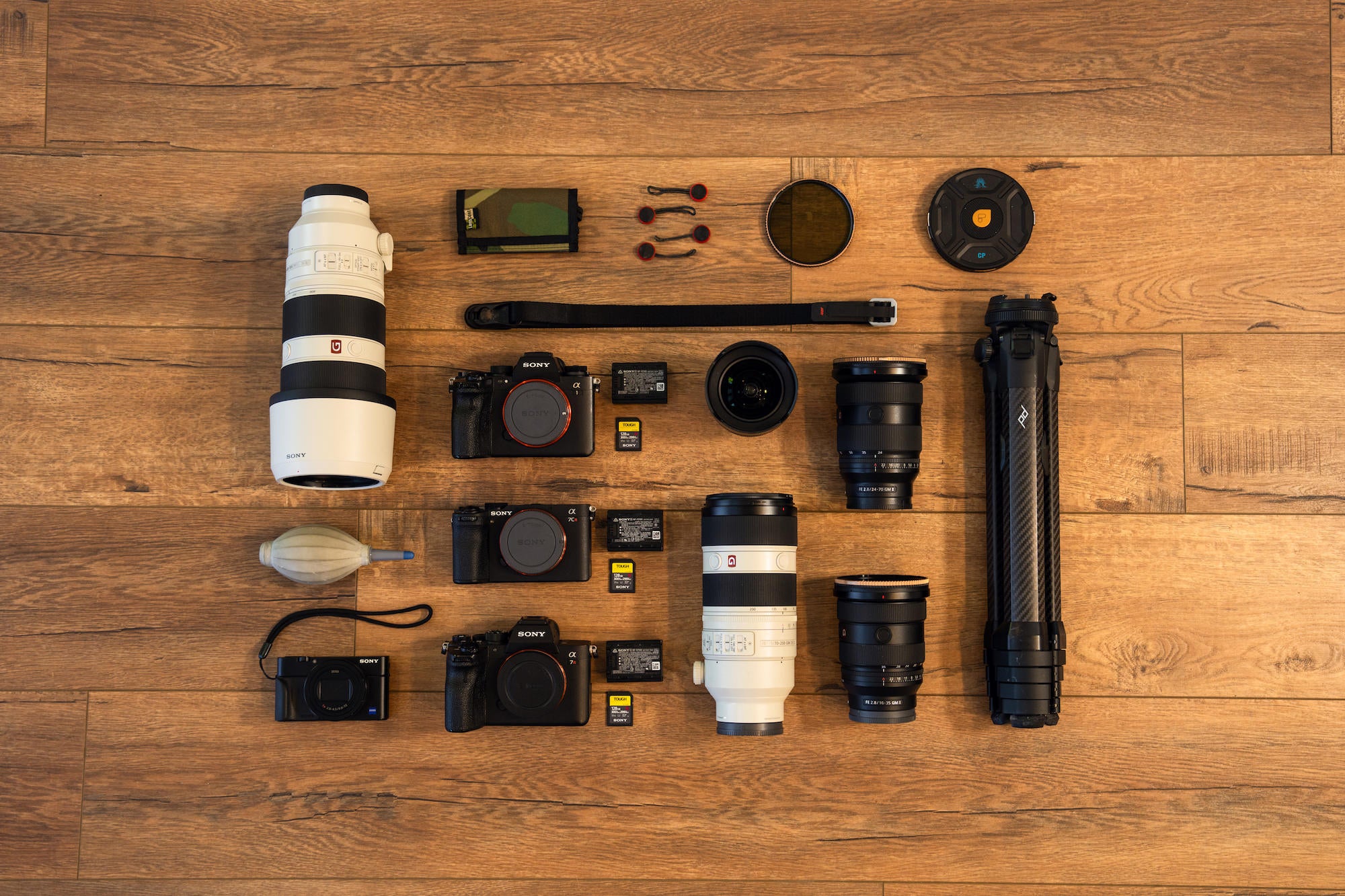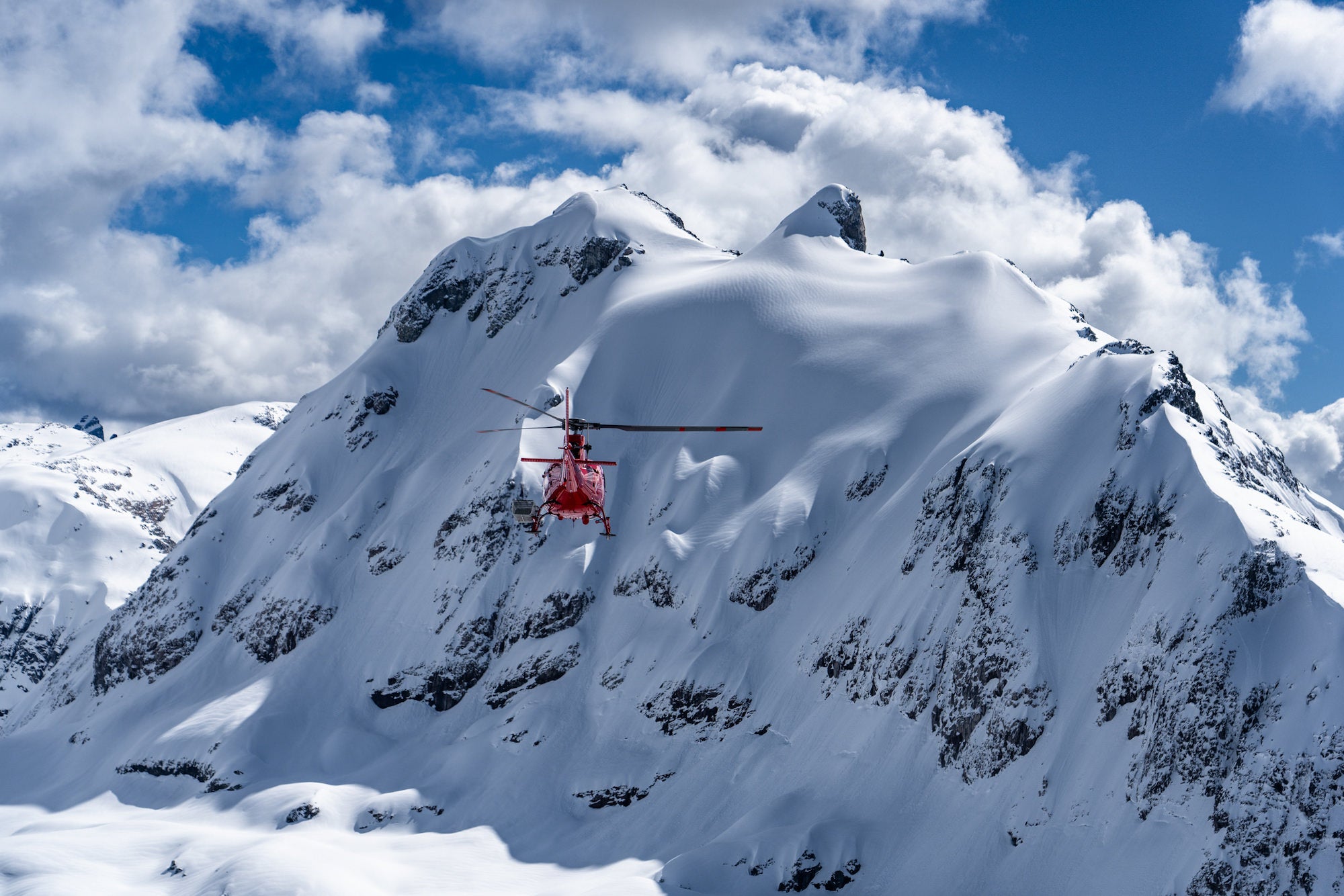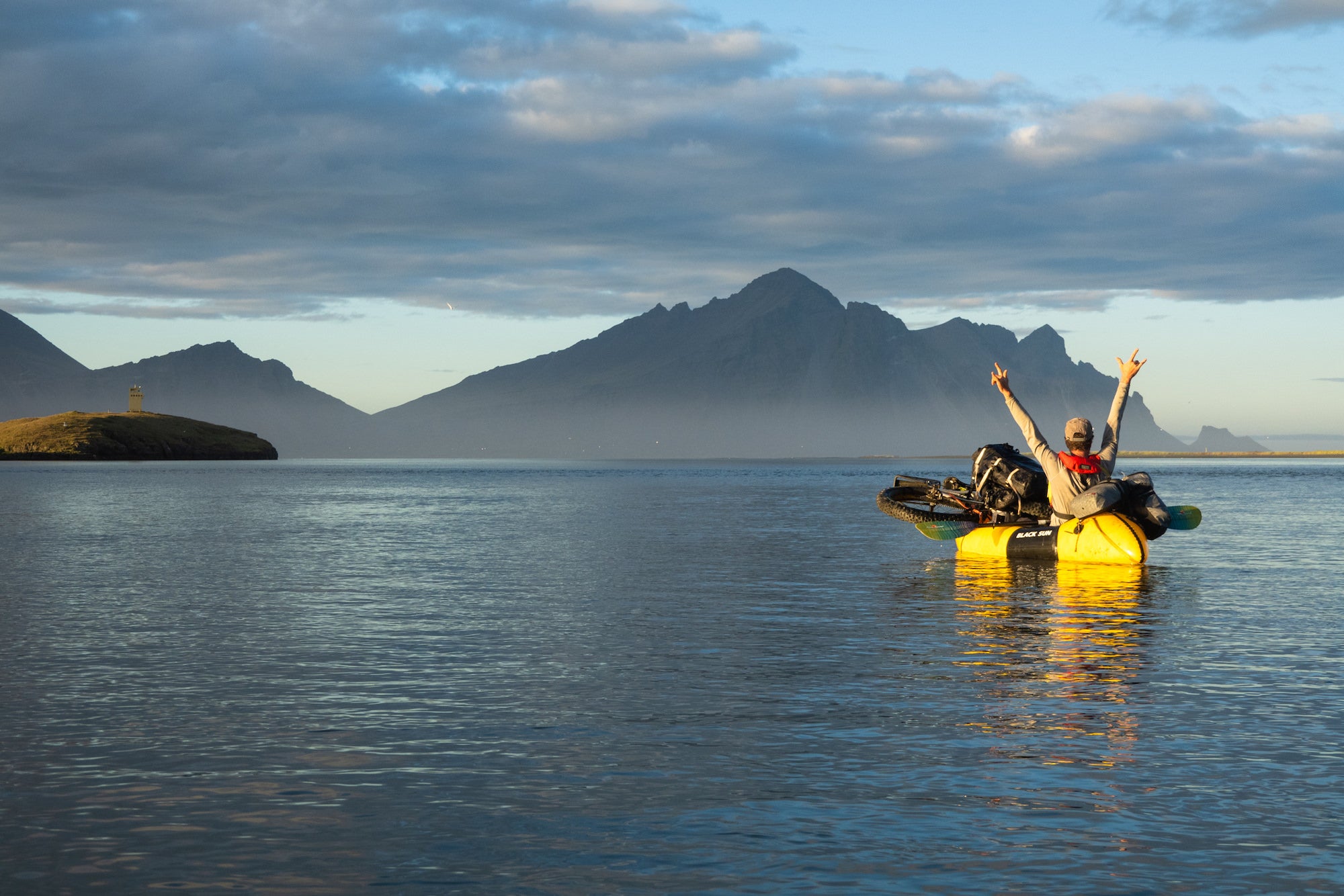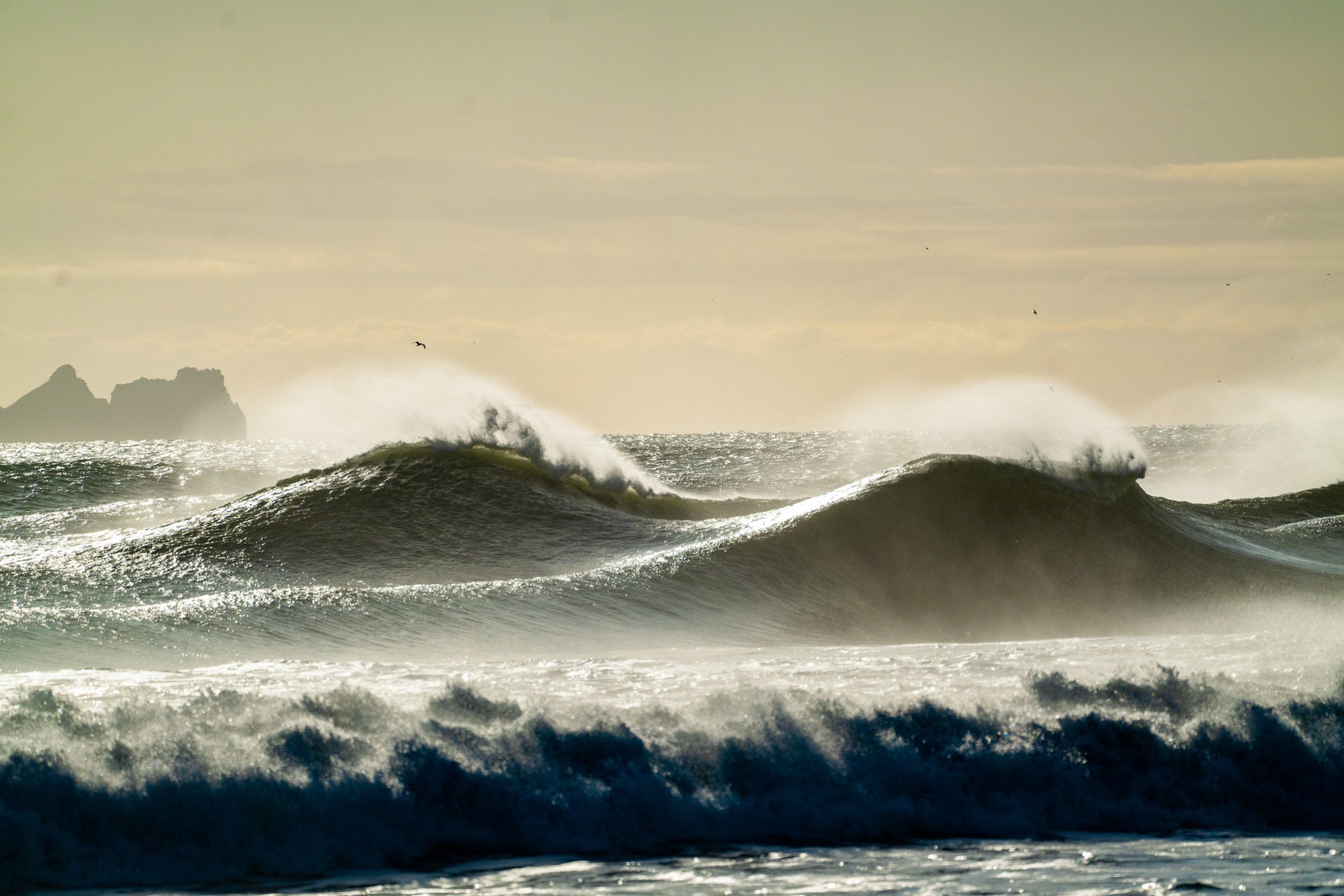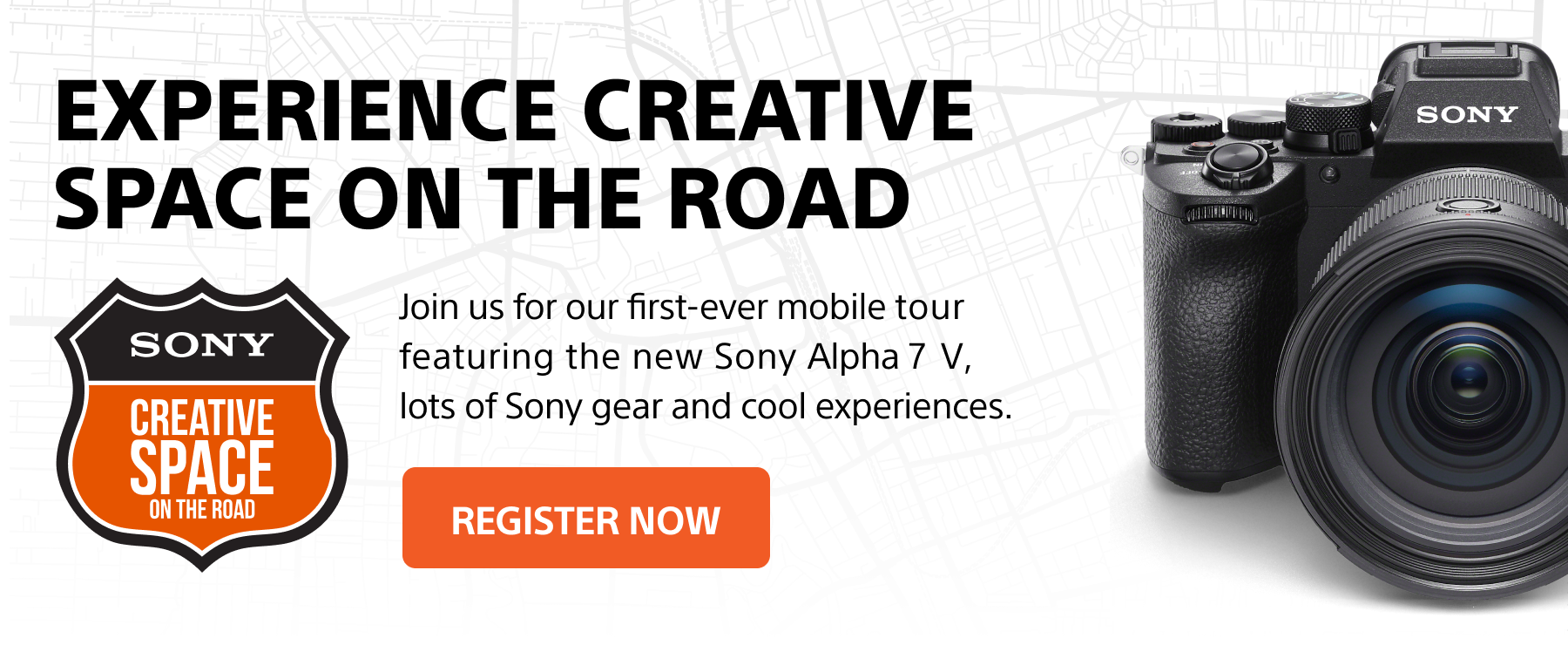Sony Artisan Chris Burkard is an accomplished explorer, photographer, creative director, speaker and author. He works to capture stories that inspire humans to consider their relationship with nature, while promoting the preservation of wild places everywhere. Through social media, Burkard strives to share his vision of wild places with millions of people, and to inspire them to explore for themselves. If there was a single word to describe what you'll find in his bag, it would be "versatility". “My camera kit is set up for outdoor, travel, adventure, surf and lifestyle subjects," Burkard says. "I use this kit for powerful landscapes, outdoor and extreme sports, and quick and lightweight trips. I try to make my bag as versatile as possible, whether I am shooting aerial photography from a Cessna or on a multi-day backpacking trip.” We caught up with Burkard to learn more about the gear he packs in his photography kit. Keep reading as he shares what’s in his bag.
Product Preview – In This Article You'll Find:
–Sony Alpha 1
–Sony Alpha 7R V
–Sony Alpha 7CR
–Sony RX100 VII
–Sony 16-35mm f/2.8 G Master II
–Sony 24-70mm f/2.8 G Master II
–Sony 70-200mm f/2.8 G Master II
–Sony 100-400mm f/4.5-5.6 G Master
Cameras
Sony Alpha 1: The Sony Alpha 1 has been the workhorse and my go-to camera on any expedition, commercial job, or film project. The ability to capture high quality photos and videos in one body is why so many people love it. I’ve captured many short form videos with this camera and this body will always join me on any big project.
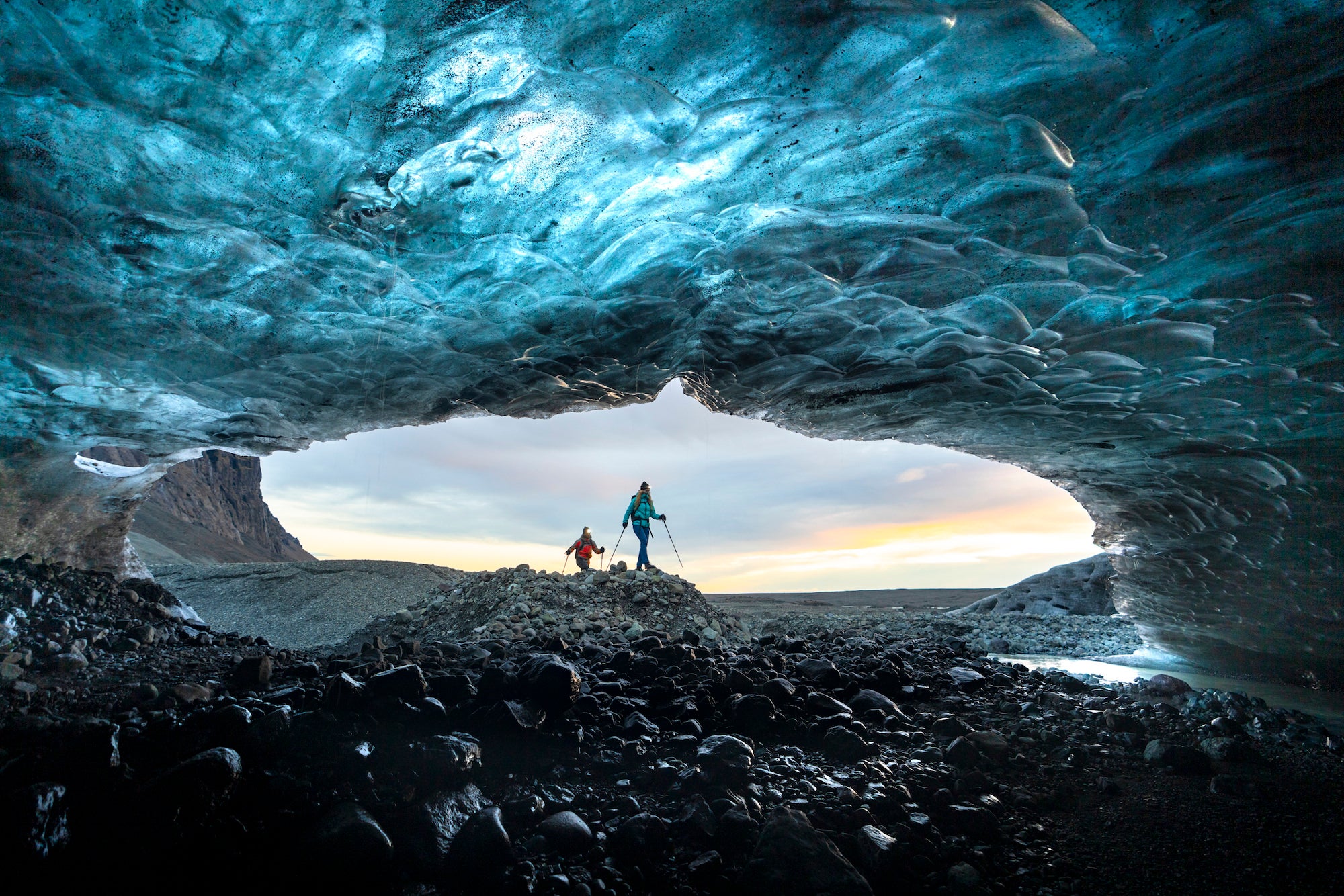
"This image was captured on a commercial photography project for Black Diamond in Iceland. The Alpha 1 was an obvious choice since we were going to be shooting photos and videos for this project." Photo by Chris Burkard. Sony Alpha 1. Sony 16-35mm f/2.8 G Master. 1/30-sec., f/2.8, ISO 200
Sony Alpha 7R V: The Sony Alpha 7R V is another one of my most used cameras in my bag. When it comes to any commercial photography job, this will be my first choice. When there is no video aspect to a project, I will be using the Sony Alpha 7R V every time. When I am capturing a commercial job or capturing landscapes, I have the highest resolution and details with this camera body. It gives me the peace of mind and the option in post production to crop in on any spot in the image and it will hold the image quality every time.
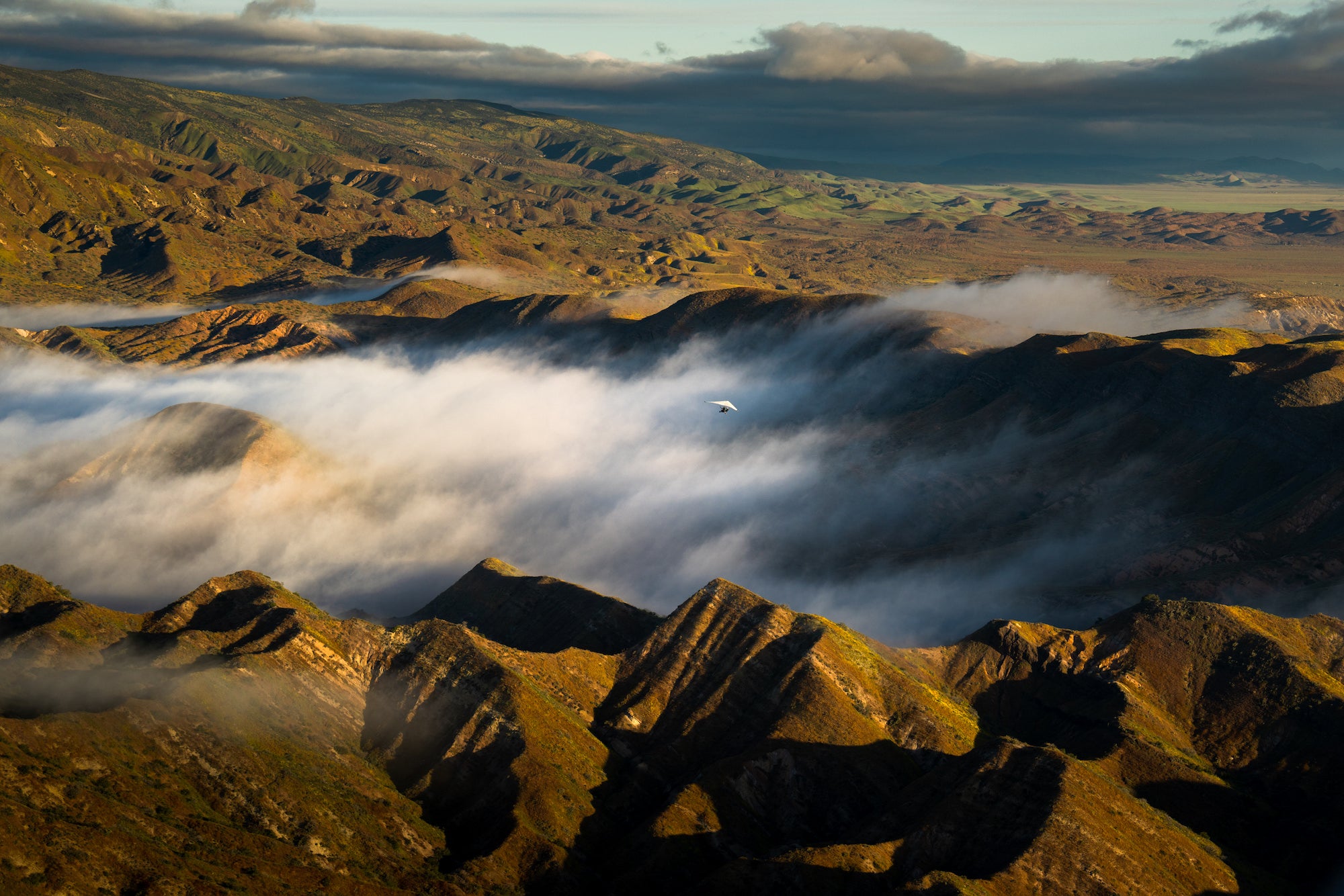
On this project for National Geographic we were capturing the 2023 superbloom in California and knowing that we were going to be shooting a lot of aerial photography the Alpha 7R V allowed us to capture everything with as much detail and information as possible. Photo by Chris Burkard. Sony Alpha 7R V. Sony 24-70mm f/2.8 G Master II. 1/1250-sec., f/2.8, ISO 100
Sony Alpha 7CR: The Sony Alpha 7CR is one of the newest additions to the Sony camera lineup and I am excited to see another lightweight camera body added to the quiver. I first started my career shooting on the APS-C sensor 6500 series from Sony and the fact that you have a full frame sensor on this small of a body is mind blowing. If you know me well, I am a sucker for lightweight gear and materials when it comes to outdoor photography and activities.
Shot on the Sony Alpha 7CR in Chile from a helicopter. I brought the camera with me for its lightweight body making it easier for me in the confined space of the helicopter. Photo by Chris Burkard. Sony Alpha 7CR. Sony 24-105mm f/4 G. 1/1600-sec., f/4.5, ISO 100
Sony RX100 VII: The Sony RX100 VII has been the fun, small and powerful point and shoot camera I bring with me on any expedition. The ability to pack this small camera anywhere on my bike, raft, or person has made it a no-brainer. I’ve captured a few of my favorite expedition images with the RX100 VII.
This image was captured alongside my short film ‘The Forgotten Coast’ as we were bike rafting the whole south coast of Iceland. The RX100 VII allowed me to pack this small lightweight camera on my bike and raft with ease to capture moments like this. Photo by Chris Burkard. Sony RX100 VII. 1/640-sec., f/4, ISO 160
Lenses
Sony 16-35mm f/2.8 G Master II: The wide angle 16-35mm lens has always been my go-to lens for landscape and adventure photography. The ability to capture the whole scene and the subject in one image is what I love most about landscape photography. Sony is now on the second generation of this lens and I couldn’t be happier with its smaller size and lightweight build. The 16-35mm lens will always be in my bag on any adventure.
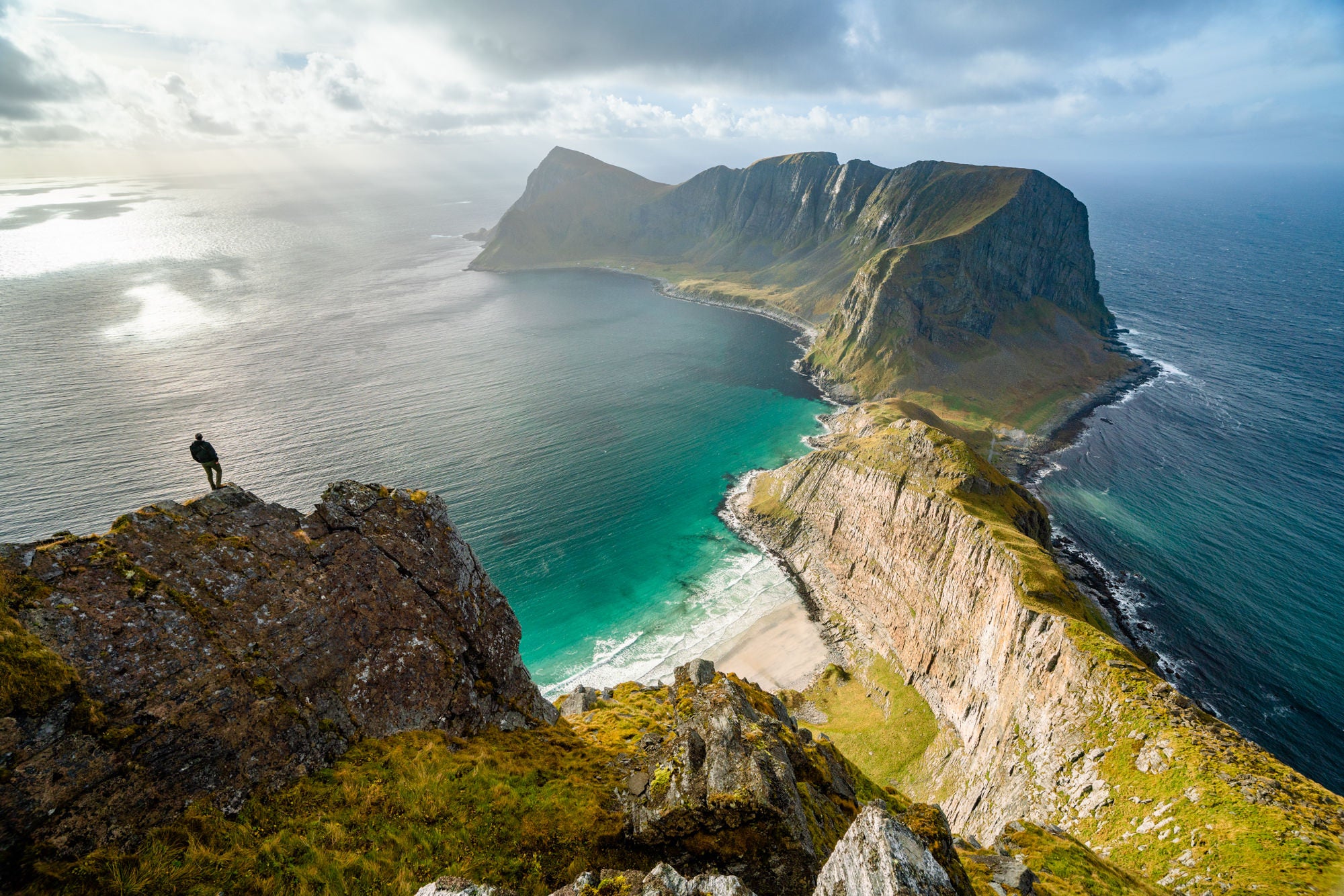
The wide angle 16-35mm lens helps me to get close to my subject while also capturing the whole island. Photo by Chris Burkard. Sony Alpha 7R III. Sony 16-35mm f/2.8 G Master. 1/320-sec., f/8, ISO 200
Sony 24-70mm f/2.8 G Master II: The Sony 24-70mm G Master II is another lens that is always with me. I bring this lens everywhere and I think everyone who has seen my photos can attest to that. The new "mark II" version of the lens is smaller and lighter than the first generation 24-70mm GM making it even easier for me to shoot from a plane and attach it to my video rig. When I'm shooting aerial photography from a plane, I will always have the 24-70mm lens with me, along with a 70-200mm lens for more reach.
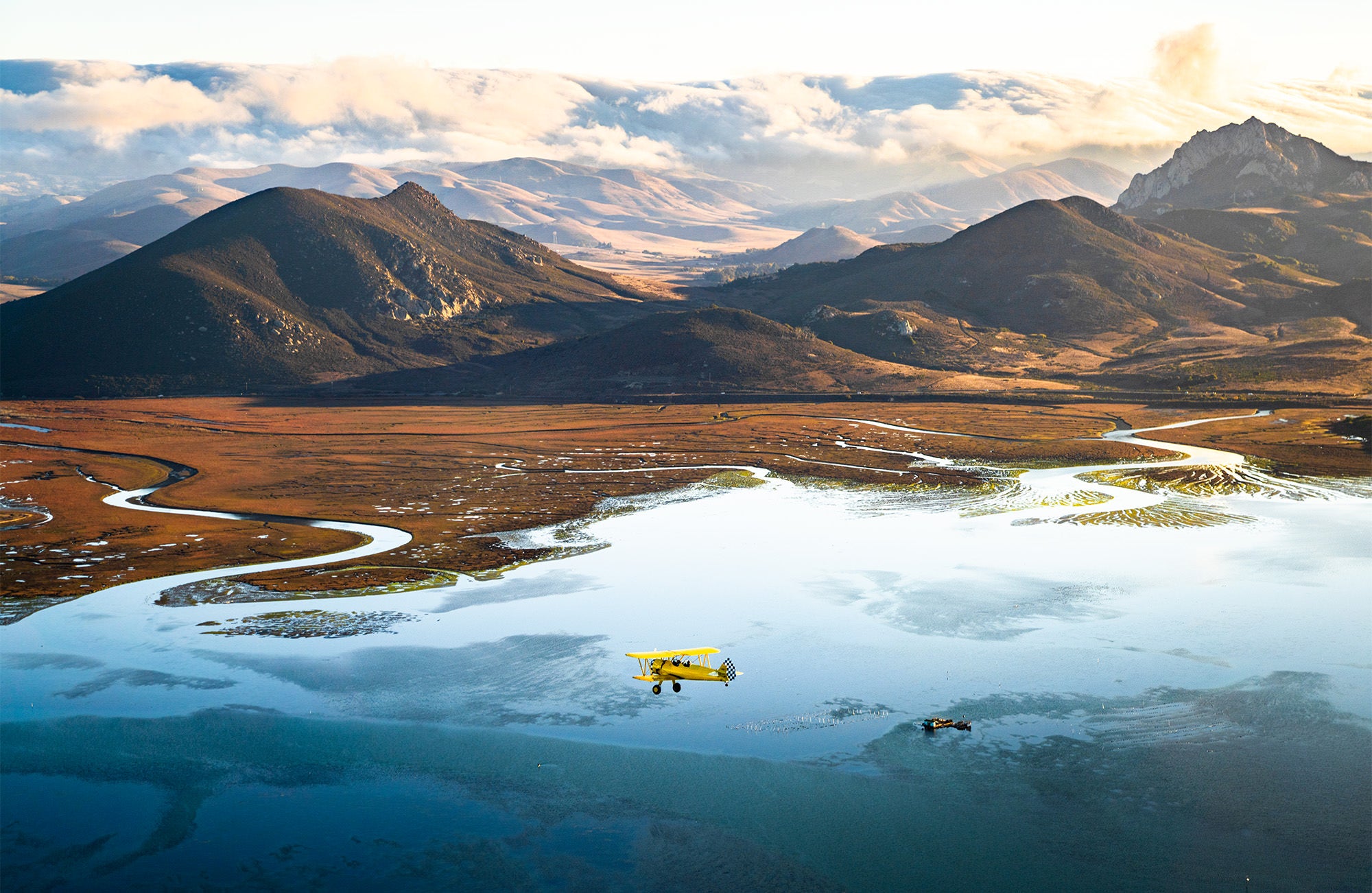
The 24-70mm is my go-to lens while shooting from a plane. It allowed me to compress this image and showcase the yellow plane a bit more. Photo by Chris Burkard. Sony Alpha 7R V. Sony 24-70mm f/2.8 G Master II.
Sony 70-200mm f/2.8 G Master II: The Sony 70-200mm f/2.8 G Master II has been the third piece of the puzzle that will always complete my bag. From surf photography to landscapes, the 70-200mm is one of the best ways to capture and compress many layers to showcase depth of field in a landscape. This lens is one of many ways for me to get creative and find textures in nature as seen in the image here. This lens has been a staple for me for many years and I doubt it will ever leave my kit.
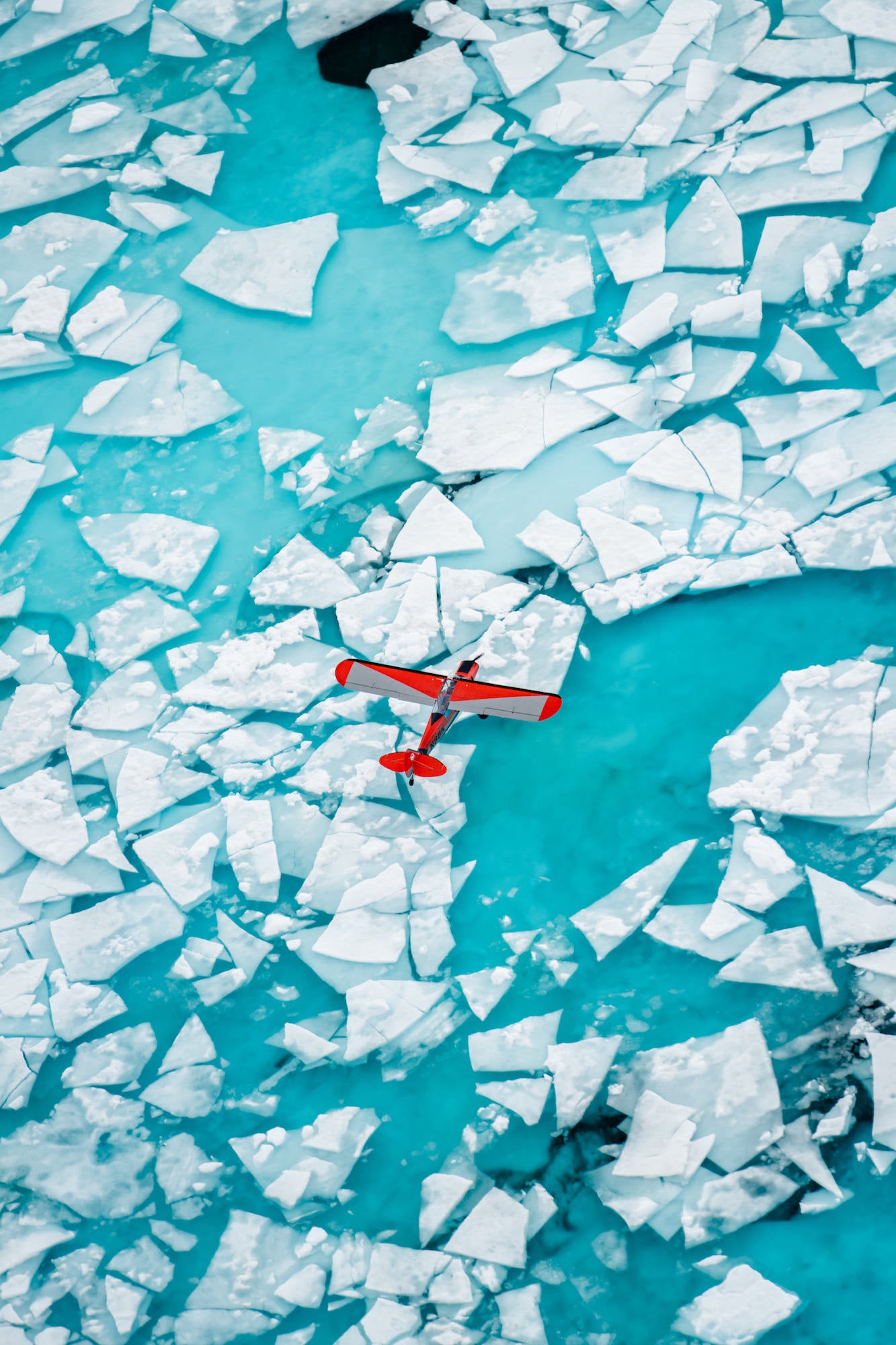
The 70-200mm lens helped me compress the ice field and bring out the textures of the ice below the plane. Photo by Chris Burkard. Sony Alpha 7R IV. Sony 70-200mm f/2.8 G Master. 1/1600-sec., f/4, ISO 200
Sony 100-400mm f/4.5-5.6 G Master: The 100-400mm zoom lens will always come with me on any surf trip. On most surf trips we are shooting mainly from the land and we need the right lenses to reach as far as possible. The 100-400mm G Master gives me the reach and also doesn’t fill up my whole bag. It allows me more room in my bag and on my body to carry more when walking to and from different angles all day.
Shot with the 100-400mm lens while capturing the Billabong surf team on the south coast of Iceland. Photo by Chris Burkard. Sony Alpha 7R IV. Sony 100-400mm f/4.5-5.6 G Master. 1/4000-sec., f/5.6, ISO 320
Accessories
Polar Pro CP Filter: Whenever I shoot I always have a circular polarizer on every lens. When it comes to outdoor photography, a CP filter is a must. On every project I use a circular polarizer to help control reflections, improve contrast and intensify colors. When shooting subjects like the ocean, aerial photography, greenery, and blue skies it is a must in my opinion.
Peak Design Tripod: In terms of design and weight, the peak design tripod is one of the best out there. I’m always looking for the lightest gear possible when traveling and on expeditions, and I’ve been very happy with this tripod and travel with one every time.
Peak Design Camera Strap: On every camera I have a peak design camera strap. These straps allow me to take on and off the straps with ease. These peak design accessories streamline my life and accelerate my photography process.
See more of Chris Burkard’s work on his Alpha Universe Profile and on Instagram @chrisburkard.
















